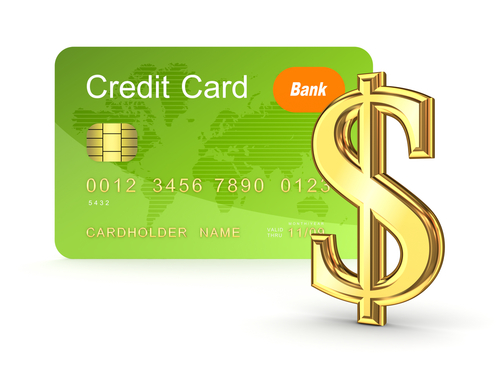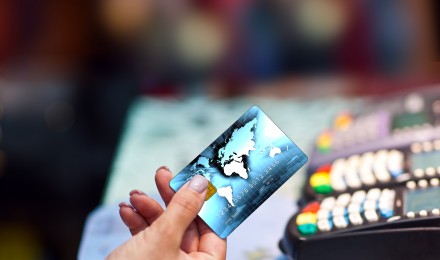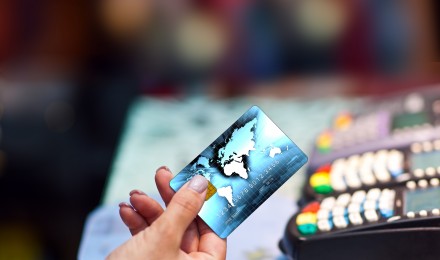Credit card use was at its height in 2008, when the recent financial crisis began. The amount owed by Americans on credit cards was a gigantic $1.03 trillion, and this was a record. Fortunately, this number has been reduced somewhat, and Americans are now being a little wiser with their credit cards.
Once the financial crisis came, many people worked hard to reduce their overall debt, including that on their credit cards. Many people had to ask for debt forgiveness, and in some cases, all or part of their debt was removed.
Earlier this year, people had once again started spending money more freely as they gained some confidence in what appeared to be a recovering economy. In July, however, it was evident that Americans, although spending more than in the previous months, were not using their credit cards as much as before, reported USAToday.com.
Although credit card spending had been reduced considerably, the reduction does not run across all markets. Auto sales with loans and education loans did not rise enough to offset the benefits of the lower credit card sales, reports NBCNews.com. The overall consumer debt for June was higher than pre-recession levels.
Two of the main reasons for this reduction of credit card use are believed to be unemployment and slow economic recovery, reports ABCLocal.go.com. The lower use of credit cards resulted in a current total national credit card debt amount of $850.7 billion in July. The Detroit Legal News reported that it was the first decline in credit card spending since August of last year.
Education loans are believed to have slowed down, too, says the Detroit Legal News, because the education loan interest rate was supposed to be raised this year. This increase, however, was successfully postponed for a year – until July 2013.
With so many people owing large sums of money to the credit card companies, and with new laws requiring that these companies indicate how long it would take to pay off the bill when only paying the minimum, it seems that many Americans have finally woken up to see where their hard earned cash is going. Of course, it remains to be seen what will happen if economic prosperity should return.
For many credit card owners, many have also learned that making late payments also brought on high late fees – and sometimes higher interest charges. It also damages your credit score, which may even jeopardize your ability to get a good job.
It is possible that this slower economy may signal problems ahead. The current growth rate was at an annual 1.7 percent in the second quarter, which may hurt businesses, as well as consumer confidence in the likelihood of recovery anytime soon.
The lower usage of credit cards by Americans also means that they may be getting wiser. Overall debt is being reduced, and many Americans are getting in better financial shape. A greater degree of frugality is also being practiced by many, which may be the result of jobs not paying the kind of salaries they used to.
Credit card use was at its height in 2008, when the recent financial crisis began. The amount owed by Americans on credit cards was a gigantic $1.03 trillion, and this was a record. Fortunately, this number has been reduced somewhat, and Americans are now being a little wiser with their credit cards.
Once the financial crisis came, many people worked hard to reduce their overall debt, including that on their credit cards. Many people had to ask for debt forgiveness, and in some cases, all or part of their debt was removed.
Earlier this year, people had once again started spending money more freely as they gained some confidence in what appeared to be a recovering economy. In July, however, it was evident that Americans, although spending more than in the previous months, were not using their credit cards as much as before, reported USAToday.com.
Although credit card spending had been reduced considerably, the reduction does not run across all markets. Auto sales with loans and education loans did not rise enough to offset the benefits of the lower credit card sales, reports NBCNews.com. The overall consumer debt for June was higher than pre-recession levels.
Two of the main reasons for this reduction of credit card use are believed to be unemployment and slow economic recovery, reports ABCLocal.go.com. The lower use of credit cards resulted in a current total national credit card debt amount of $850.7 billion in July. The Detroit Legal News reported that it was the first decline in credit card spending since August of last year.
Education loans are believed to have slowed down, too, says the Detroit Legal News, because the education loan interest rate was supposed to be raised this year. This increase, however, was successfully postponed for a year – until July 2013.
With so many people owing large sums of money to the credit card companies, and with new laws requiring that these companies indicate how long it would take to pay off the bill when only paying the minimum, it seems that many Americans have finally woken up to see where their hard earned cash is going. Of course, it remains to be seen what will happen if economic prosperity should return.
For many credit card owners, many have also learned that making late payments also brought on high late fees – and sometimes higher interest charges. It also damages your credit score, which may even jeopardize your ability to get a good job.
It is possible that this slower economy may signal problems ahead. The current growth rate was at an annual 1.7 percent in the second quarter, which may hurt businesses, as well as consumer confidence in the likelihood of recovery anytime soon.
The lower usage of credit cards by Americans also means that they may be getting wiser. Overall debt is being reduced, and many Americans are getting in better financial shape. A greater degree of frugality is also being practiced by many, which may be the result of jobs not paying the kind of salaries they used to.







